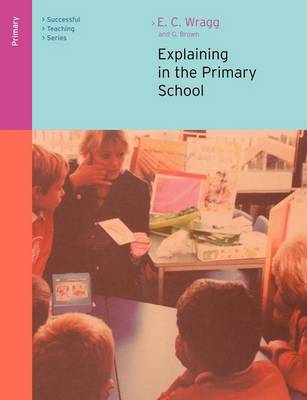Successful Teaching
3 total works
Questioning in the Secondary School
by Professor E. C. Wragg and George Brown
Published 19 April 2001
Questioning in the Primary School
by Professor E. C. Wragg and George Brown
Published 1 January 2001
Explaining in the Primary School
by E. C. Wragg, George Brown, and Ted Wragg
Published 19 April 2001
This book is one of a set of eight innovative yet practical resource books for teachers, focussing on the classroom and covering vital skills for primary and secondary teachers. The books are strongly influenced by the findings of numerous research projects during which hundreds of teachers were observed at work. The first editions of the series were best sellers, and these revised second editions will be equally welcomed by teachers eager to improve their teaching skills. Ted Wragg and George Brown show what explanation is and what it aims to do. The book explores the various strategies open to teachers and, through a combination of activities and discussion points, helps them to build up a repertoire of ideas, approaches and techniques which are suitable for various situations, as well as evaluate the effectiveness of their explanations in the classroom. Along the way it covers such issues as:
*the use of an appropriate language register
*the place of analogies *building on children's questions
*coping strategies for effective explanation
The ability to explain something clearly is a skill which effective teachers use every day. Explanation is the foundation on which the success or failure of a great deal of other forms of teaching can rest. Well done, it saves time and provides motivation. Badly done, it produces uncertainty, or even puts children off their studies.
*the use of an appropriate language register
*the place of analogies *building on children's questions
*coping strategies for effective explanation
The ability to explain something clearly is a skill which effective teachers use every day. Explanation is the foundation on which the success or failure of a great deal of other forms of teaching can rest. Well done, it saves time and provides motivation. Badly done, it produces uncertainty, or even puts children off their studies.

